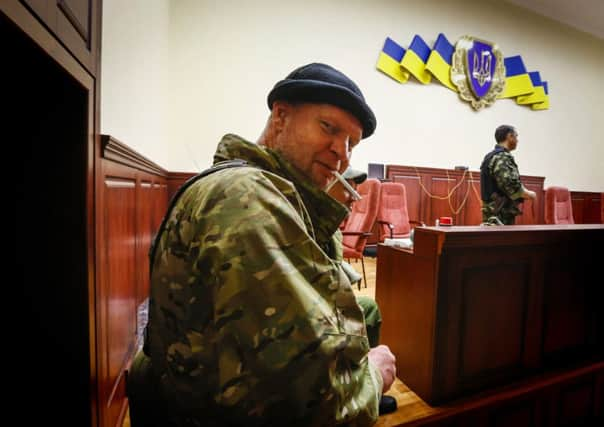Nato ‘using Ukraine crisis for its own ends’


Anders Fogh Rasmussen, secretary-general of the North Atlantic Treaty Organisation, warned Russian president Vladimir Putin to pull back troops from the Ukrainian border or face the consequences if they intervene.
Advertisement
Hide AdAdvertisement
Hide AdRussia said Mr Rasmussen’s remarks were confrontational and that in recent months he had not offered “any constructive agenda” for Ukraine, adding that Nato was increasing instability in the region.
“The constant accusations against us by the secretary-general convince us the alliance is trying to use the crisis in Ukraine to rally its ranks in the face of an imaginary external threat to Nato members and to strengthen demand for the alliance… in the 21st century,” Russia’s foreign ministry said.
Nato has suspended all military and civilian co-operation with Russia since Ukraine’s southern Crimea region was incorporated into the Russian Federation last month.
The western military alliance has also limited access for Russian diplomats to its headquarters and is reviewing a 1997 co-operation agreement with Russia and subsequent Rome declaration of 2002 that prevented it from setting up bases in eastern and central Europe.Russia has responded by accusing Nato of having a Cold War mentality and has expressed concern over the possibility of deploying the alliance’s troops in eastern Europe permanently.
The move came as the Council of Europe – which includes 47 member states, many more than the 28-state European Union – has suspended Russia’s right to vote and take part in election observations to punish its annexation of Crimea. The vote came after a boycott from Russia’s 18-strong delegation.
Russian delegation chief Alexey Pushkov called the actions by the Council of Europe a “farce that can only elicit revulsion”.
The Strasbourg-based council is Europe’s human rights watchdog and its court issues binding decisions, although it does not pass laws.
The suspension is valid until the end of the year. Britain had pushed for Russia to lose its place altogether.
Advertisement
Hide AdAdvertisement
Hide AdIn other developments yesterday Ukrainian acting president Oleksandr Turchynov promised that pro-Russian activists occupying government buildings in the eastern cities of Donetsk and Luhansk will not be prosecuted if they surrender. Hundreds of armed pro-Russian protesters have occupied a regional government administration building in Donetsk and a branch of the Ukrainian security service in Luhansk since Sunday.
Many pro-Russian supporters in the east want to break away from Ukraine just like Crimea.
Activists armed with automatic rifles, pistols and knives kept guard on the building. One protester said they had about 200-300 rifles.
They have demanded a referendum on broader autonomy or even secession from the new Kiev authorities, who took power after president Viktor Yanukovich fled to Russia in February following months of protests.
Tensions were still high last night in Donetsk, with about 1,000 protesters standing outside the occupied building chanting “Russia! Russia!” Activists were reinforcing barricades with tyres and cobbles.
Local protest leaders defied requests to leave the building and announced they would create a foreign relations group to reach out to Russia for assistance.